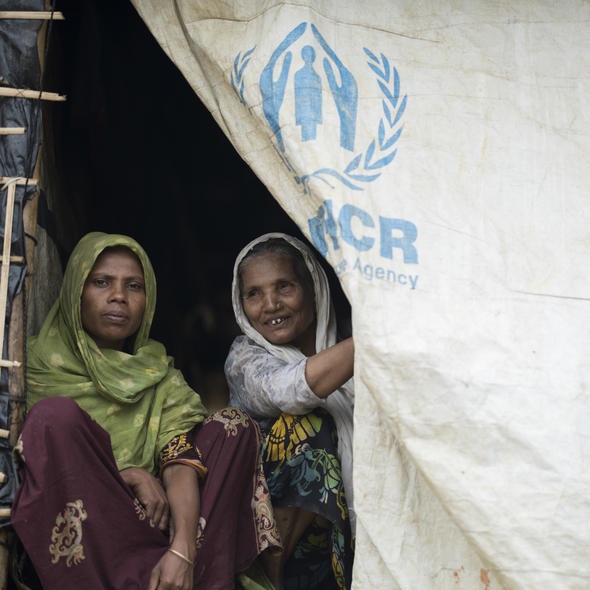Socio-economic study of impact of corona virus pandemic on refugees and asylum seekers, 2020
India, 2020
Get MicrodataIdentification
UNHCR_IND_2020_SEI_COVID_v2.1
Socio-economic study of impact of corona virus pandemic on refugees and asylum seekers, 2020
| Name | Country code |
|---|---|
| India | IND |
Demographic and Health Survey [hh/dhs]
The ongoing coronavirus pandemic, along with the preventive measures designed to slow its spread, are putting great stress on India's economy, and affecting the lives and livelihoods of millions of people, including refugees across the country. To determine the exact social and economic consequences of the crisis, UNDP and UNICEF, are working under the leadership of the UN Resident Coordinators, and in close collaboration with specialized UN agencies, to assess the socio-economic impacts of the COVID-19 pandemic on vulnerable communities.
UNHCR led the socio economic impact assessment for refugee population in India. The assessment was conducted in collaboration with UNICEF and in partnership with BOSCO.
As of June 2020, 40,068 refugees and asylum seekers from different nationalities are registered with UNHCR in India (28,053 refugees and 12,015 asylum seekers). Approximately 51% of the population registered with UNHCR lives in Delhi NCR, the remaining population live throughout the country, with bigger groups in Hyderabad, Jammu and Mewat. Rohingya are the largest group of persons of concern to UNHCR in India with 17,772 persons, followed by Afghans (15,806 persons). Of the total population registered with UNHCR, 47% are women and girls while 16% are persons with specific needs.
The survival mechanism for most of the refugees and asylum seekers is mainly based on a daily income that is immensely challenged with the ongoing lockdown and restriction of movement introduced by the central and state governments. These restrictions make it impossible for asylum seekers and refugees to reach the location of their informal employment or daily income generating activities, or to receive customers for their goods and services. Their income and possible savings have dried up leaving them with no means to adequately provide for their families, including in the areas of food, shelter and medicine
Sample survey data [ssd]
Individuals and households
Version
v2.1: Edited, anonymous dataset for licensed distirbution.
2020-10-15
Scope
Individuals: basic demographics, awareness of COVID and prevention methods.
Households: income and work situation and change, protection, social networks, education accessibility.
| Topic |
|---|
| Health and Nutrition |
| Health |
| Water Sanitation Hygiene |
| Protection |
| Food security |
| Education |
| Gender Based Violence |
| Food Distribution |
| Domestic Needs/Household Support |
| Income Generation |
| Basic Needs |
Coverage
National
All refugees registered by UNHCR in India.
Producers and sponsors
| Name |
|---|
| UNHCR |
| BOSCO |
Sampling
Clustered random sampling, with clusters divided by region (Delhi, outside Delhi), and legal status (Asylum seekers and Refugees).
Sample weights for the household data were computed as the inverse of the probability of selection of the household.
Survey instrument
Questionnaires included 9 modules:
- General information
- Awareness of COVID outbreak
- Current work situation and impact on household income
- Social protection at times of lockdown
- Life at times of lockdown
- Scenario of work during lockdown relaxation/after lockdown
- Protection
- Education/Children's Protection/SGBV
- General questions
Data collection
| Start | End |
|---|---|
| 2020-08-11 | 2020-08-31 |
| Name |
|---|
| UNHCR |
| BOSCO |
Study was conducted through phone calls by 25 trained refugee youth of different nationalities. They were supervised by the staff of the NGO partner BOSCO on daily basis
Data processing
Data was cleaned and anonymized for licensed use.
Data Access
| Name | Affiliation | |
|---|---|---|
| The Curation Team | UNHCR | microdata@unhcr.org |
| Ajit Dogra | UNHCR | dogra@unhcr.ogr |
UNHCR (2020). Socio-economic study of impact of corona virus pandemic on refugees and asylum seekers in India. UNHCR Microdata Library: https://microdata.unhcr.org
Metadata production
UNHCR_IND_2020_SEI_COVID_DDI_v1.0
| Name |
|---|
| UNHCR |
2020-10-20
Metadata version
Version 1.0 (October, 2020)
